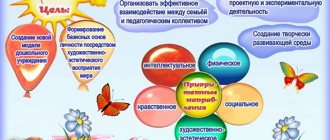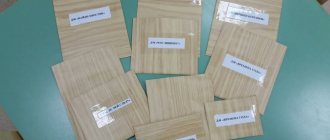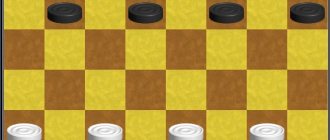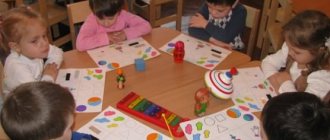Thematic control “Organization of a story game” educational and methodological material on the topic
Plan for thematic control on the topic:
"Organization of a story game"
Dates: April 10 – 21, 2022
Performers: head Kharchikova E.Zh., deputy head of the VMR Storozhenko E.Ya., senior teacher Gamolka S.Yu.
Purpose: to determine the effectiveness of educational work in preschool educational institutions on organizing role-playing games with preschool children.
Tasks:
1. Study the documentation of teaching staff on planning and directing role-playing games for preschoolers.
2. Assess the work of the teaching staff in organizing the management of role-playing games for children in different age groups.
3. Summarize the system of work and determine the prospects for the activities of the teaching staff in organizing the role-playing game.
Questions to be checked:
- Analysis of teacher guidance in children's play activities.
- Analysis of the conditions created in the group for children’s play activities.
- Professional knowledge and skills of the teacher in organizing children's play activities.
- Assessment of forms of interaction with parents on the problem of gaming.
Basic forms and methods of control
- Observation of teachers
- Interview with teachers
Assessment Toolkit
- Analysis of teacher guidance in children's play activities.
- Analysis of the conditions created in the group for children’s play activities.
- Identification of the level of gaming knowledge, skills and abilities in children.
Head of MBDOU
“Ilan kindergarten No. 50” E.Zh. Kharchikova
Final certificate of results
thematic control
Topic: “Organization of a story game”
The thematic inspection took place from April 10 to April 21, 2022 in accordance with the annual plan of educational work for the 2016-2017 academic year in all age groups.
By order of preschool educational institution No. 15 dated April 3, 2022, a commission was created consisting of:
Kharchikova E.Zh.. - chairman of the commission, head of the MBDOU;
Gamolka S.Yu. - member of the commission, Art. teacher
Storzhenko E.Ya. – member of the commission, deputy head. VMR
- An assessment of the teacher’s management of children’s play activities showed:
- When guiding game activities, teachers use game management techniques, pedagogical tact, and the emotional factor.
- The methodology of the game is followed. But the results are not summed up and the past game is not discussed, and in all groups no preliminary work is carried out before the game. In the older group, teacher Sukharkova N.M., there were errors in the methodology of the game: there was no setting of tasks and goals of the game, design of the development of the game, few techniques were used to develop activity and attract all children to the game.
- Interconnection with other activities was carried out partially.
- Almost all teachers have sufficient knowledge of the peculiarities of organizing a story-based game in each age group. But if board games are widely used in our kindergarten and are popular with teachers, then children mostly play role-playing games, left to their own devices, while teachers monitor discipline at this time, going about their business.
- An assessment of the conditions created in the group for children’s play activities showed:
- Conditions for children's play activities have been created in all groups of preschool educational institutions. The play centers are equipped with everything necessary, are in an aesthetically pleasing condition, and are located and stored in a place accessible for use by children. But there is no variety or zest in creating conditions for role-playing games.
- In all groups, teachers develop in children a sense of responsibility for preserving toys and the ability to put them in order, and follow the rules for using toys.
- In all groups, parents take an active part in making attributes for play activities: this includes sewing special clothes for roles, beds and clothes for dolls, purchasing containers for storing attributes, and making the attributes themselves for games.
- Role-playing games are planned systematically in all groups. Recommendations for planning the required number of games, thematic diversity, and matching the goals of the games with respect to age characteristics are taken into account and implemented by teachers.
- Assessment of gaming knowledge, skills and abilities in children showed:
- The level of development of playing qualities in all groups corresponds to age. In the younger group, children are actively taught the ability to invent and act out a simple plot, take on a role and perform role-playing behavior. Self-service skills are not fully developed; children do not know how to independently tidy up the attributes, equipment, and toys they use after finishing the game. In the older group, children play out only one plot; the introduction of an additional plot and roles complicates the development of the game. Not all children master the distribution of roles - they simply wedge themselves into the game and, if the players do not object, play in concert with them or in parallel. Substitute items are actively used in this group. Children play with enthusiasm and desire, and are well oriented in the play space of the group. In the pre-school group, children are able to clearly assign roles and perform role-playing behavior, set a goal and find the means to achieve it. Children feel a sense of responsibility for fulfilling the role assigned to them, but without the teacher’s prompting, the plot of the game does not develop; children are carried away by one game action that is of interest to them.
- In all groups, children have a sense of responsibility for fulfilling the role assigned to them, fulfill ethical standards of behavior during play, follow the rules for using toys, and do not know how to complete the game.
Based on the results of thematic control, the following conclusions can be drawn:
- The level of development of role-playing games and work in this direction by the teaching staff can be assessed as average. And the conditions for the game, and the preparedness of teaching staff, and planning, and cooperation with parents - all these areas require close attention and in-depth work of the entire team.
- An assessment of the conditions created in the group for children’s play activities showed that the conditions were created in all groups of preschool educational institutions, but required diversity.
- Basically, children's gaming knowledge, skills and abilities are formed. Children play actively and with interest, following the rules.
Recommendations:
- To improve the conditions for play activities that provide a new quality of education.
- To study the theoretical basis for organizing a role-playing game in accordance with the Federal State Educational Standard.
- Involve parents in organizing gameplay in preschool educational institutions.
Head of MBDOU
“Ilan kindergarten No. 50” E.Zh. Kharchikova
Deputy Head VMR E.Ya. Storozhenko
Senior teacher S.Yu. Gamolka
Methodological work in kindergarten
Information on the results of operational control. “Analysis of the creation of a developing subject-spatial environment for the development of role-playing games”
Order No. 17 of February 12, 2016
Author of the work: Svetlana Petrovna Vdovenko, senior teacher, kindergarten No. 2 “Smile”, working village Ekaterinovka Purpose: to analyze the work of the teaching staff in mastering innovative areas in the content and practice of guiding children’s play activities and improving the developmental environment in groups. Age groups:
all age groups of kindergarten
Selection of control content:
Observation and analysis of the organization of role-playing games in each age group, the activities of the teacher in the process of organizing the game.
Planning role-playing games in each age group. Analysis of the state of the gaming educational subject-spatial environment. Control dates
: February 15 – 17, 2016
Basis for control: fulfillment of the task of the annual plan for the 2015–2016 academic year. Composition of the commission:
head of the preschool educational institution - Tarasova T.N.
senior teacher - Vdovenko S.P. Methods: analysis, observation, conclusions. Operational control was carried out in accordance with the annual work plan of the preschool educational institution with the aim of teachers using new approaches to organizing role-playing games. The activities of the teachers were based on the recommendations of the exemplary general education program “From Birth to School” and the methodological guide “Development of Play Activity” by N.F. Gubanova. The manual reveals the general strategy of the teacher's behavior when organizing the game and the specific tactics of his interaction with children in the game at different stages of preschool childhood. During the control, the following results were revealed: Role-playing games are organized in each age group, by each teacher, as a separate joint play activity between children and adults and as part of educational activities. During the observation of the plot game, a system was noted in the work of teachers in organizing the game with children, the children’s ability to organize the game independently, take on some role, implement role actions, change their role behavior in accordance with the different roles of partners, lead role-playing dialogue with a playing partner. At the same time, the teacher changes his position in the game: first he plays the main role, then auxiliary roles, then becomes an observer of the children's game, at any time able to come to the rescue if a difficult situation arises in the plot. So, for example, in the second early age group, teacher Ermakova S.V. organized both an individual “Let’s dress up the doll Lyuba” and a joint “Margarita’s Birthday” role-playing game. The leading role during the game belonged to the teacher; she created problematic game situations so that the children fulfilled the assigned task in the game. The teacher of the younger group, Budynkova M.G., organizing the game “Hospital”, identified herself as a doctor, gradually the teacher involved the children in the game, offering them the roles of patients. Then the teacher suggested that the child take on the main role of the doctor; as a result, the children played the role of both doctor and patient. Thus, the teacher taught the children to accept and designate different play roles, to develop role-playing interactions, and elementary role-playing dialogue with a peer partner. As a result, the children successfully continued to play “Hospital” on their own, using attributes and toys. At the same time, the teacher activated the children and was nearby. Watching the game in the middle group, it is necessary to note the complication of the goals set, the role relationships between partners, and the inclusion of more roles in the game. Educator Efremova E.N. set a goal for more complex role-playing behavior in the game “Hospital”. Having offered the main role of a doctor to the child, the teacher outlined her additional role as a patient, then she invited the “doctor” to be his nurse and help him see patients. She demonstrated examples of role-playing dialogues and role-playing interactions in the game, and involved children in the game. Gradually a big game unfolded, in which all the children participated. At the same time, the teacher also continued to change her play role and designate a new one for her play partners, showing the children examples of different role behavior in accordance with different roles. These were the roles of a pharmacy that opened, where you can buy medications prescribed by a doctor; There was a need to bring these medications to the pharmacy, so the role of a car driver appeared. Teacher of a mixed age group Tsarenko E.V. continued to develop in children the ability to change their role behavior in accordance with the different roles of partners in the “Supermarket” game. The main role was also designated by the child, and additional roles were performed by the teacher. Here, after some paired role interaction “seller - buyer”, the need arose for the emergence of new game roles. New events were developing. At the same time, the teacher seemed to be negotiating with the children about the upcoming change in the plot and the emergence of new roles. As a result, the children continued to play independently. The teacher joined the game only when it was necessary. Teacher Anikina I.G. organized the game “Bus”, where the children of the entire group were gradually involved in the game: driver, cashier, passengers, controller. Gradually the game continued, the passengers became hungry, and the teacher suggested playing the game “Cafe”. The game used various attributes. In the senior and preparatory school groups, educators strive to teach children to combine various events in the game, to coordinate individual plans in the overall plot. Thus, teacher of the senior group Yakovleva Yu.V. invited the children to go to the “City of Masters”. The game combined events taking place in a hairdressing salon, a store, a construction site, and a hospital. Children independently determined play partners and roles for themselves, and developed role-playing interactions and dialogues. The teacher outlined her role, the role of a journalist who visits all the places in the city of masters. Various role-playing dialogues unfolded. They developed children’s speech, stimulated them to engage in activities, and helped carry out role-playing interactions. The game continued for a long time and stopped when parents began to pick up their children. Teacher of the preparatory school group Lisina E.M. Together with the children, she organized a game - the “Young Researchers” laboratory. The theme of the game and the main events were discussed verbally; role interaction was carried out, actions characteristic of the characters were discussed. The teacher took on the role of a scientific consultant (observed the game, coordinated as necessary), the children took on the role of young scientists. The children had the initiative in the game (they explored objects of living nature), after finishing the game they decided to continue exploring inanimate nature the next day. The game used substitute items. As a result of the analysis of the organization of role-playing games, the interest of each teacher is noted, his desire to teach children to play and to learn to use new approaches to organizing role-playing games. All teachers used artistic words in the game, various attributes, but preliminary work was carried out only in a group of different ages. Role-playing games are planned in the educational calendar on a daily basis. The themes of the games are varied; when planning, the interest of children and the emergence of new concepts in the surrounding life are taken into account. In each group, a developing subject-spatial environment has been created to organize free play activities for children. Teachers systematically update the attributes for the game, using both ready-made items purchased in the store and those made with their own hands from waste material (especially in a mixed-age group). During the control, no system of work with parents on organizing play was noted in any age group. Conclusions: • Role-playing games are organized in kindergarten, children have the skills to play. • Educators in the system plan play activities, replenish the developmental subject-spatial environment, and study methodological literature on the organization of play. Recommendations: 1. Educators plan role-playing games in accordance with the age of the children, the senior teacher should supervise the formulation of the goals of the play activity, and, if necessary, organize consultations for educators on organizing role-playing games. 2. Conduct preliminary work before teaching children play actions. With older preschoolers, plan the preparation and repair of play attributes. 3. Educators provide parents with information about the importance of role-playing games in a child’s life, involve parents in organizing children’s play activities, and creating attributes for the game.
We recommend watching:
Card file of games and experiments with water in the second junior group of kindergarten Implementation of the educational area “Health” within the framework of the Federal State Educational Standard in kindergarten Storytelling in kindergarten Sports festival for children 3-4 years old. Methodological development
Similar articles:
How to organize the educational process in a preschool educational institution
Development of creative abilities of preschool children in theatrical activities
Emotional development of a senior preschooler
Pedagogical terms for educators
How to assess a child's mental abilities





